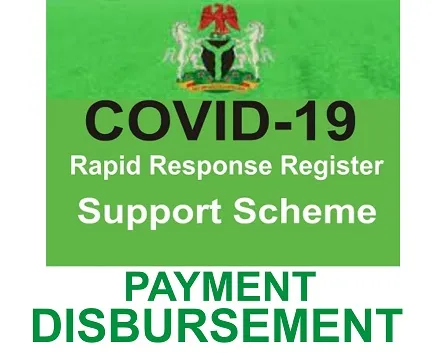Update on Second Batch Disbursement of N30,000 for the COVID-19 Rapid Response Register
Nigerians have been warned by the Federal Ministry of Humanitarian Affairs, Disaster Management, and Social Development to watch out for fake people pretending to be ministry representatives for the COVID-19 Rapid Response Register (RRR).
The Ministry said this on Monday in response to a social media post that said calling 07047328536 might make it easier for applicants to get COVID-19 RRR.
The NASSCO COVID-19 Rapid Response Register says that in September 2022, the second group of people in the program will get a big cash transfer of N30,000.
After all the preparations have been made, the NASSCO COVID-19 RRR will start to be given to more than 2 million people in the second batch within the time frame.
The COVID-19 RRR cash transfer of N30,000 is a one-time payment of N5,000 per month for the six months that the COVID-19 RRR Cash Transfer Program would be in effect.
The first phase of the COVID-19 RRR Cash Transfer Program will end in June 2022. The National Social Safety-Nets Coordinating Office (NASSCO) has started a $800 million program called NASSP Scale Up to give cash transfers to 10.2 million Nigerians.
NASSCO says that the Rapid Response Register project is still going on and that the program is trying to reach more people who could benefit from it.
Remember that when COVID-19 RRR was introduced in December 2020, Vice President Prof. Yemi Osibanjo said that the National Social Register would be used to find and register more than 24.3 million poor and vulnerable people, which is about 5.7 million families.
The Federal Ministry of Humanitarian Affairs, Disaster Management, and Social Development is working with the Rapid Response Register (RRR) for COVID-19 Cash Transfer, a World Bank-supported National Social Safety Nets Project, to find and record the Urban and Semi-urban Poor who have lost their income streams and become even poorer as a result of the bad economic effects of COVID-19.
The COVID-19 pandemic has had an effect on the economy. Because of this, the National Social Safety Nets Project (NASSP) is building The Register all over the country to help non-traditional poor people who live in cities, high-density areas, or slums.
People and households who are on the COVID-19 Rapid Response Register get N5,000 every six months.






















